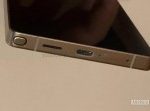
The very first PS5 die shot was posted online about an hour ago by Twitter user @FritzchensFritz, who specializes in taking close-ups (including infrared shots) of high-end chipsets.
One thing that’s abundantly clear from the PS5 die shot is how caches are separate, which means the PlayStation 5 features no Infinity Cache, despite speculations of the contrary. AMD introduced Infinity Cache on its RDNA 2-powered Radeon RX 6000 GPUs; it’s an ‘all-new cache level’ of 128MB whose purpose is to enable high bandwidth performance at low power and low latency, acting as a bandwidth multiplier, delivering up to 3.25x the effective bandwidth of 256-bit 16GB GDDR6 memory. The cache is seen by the graphics core as a whole, capturing temporal re-use and enabling near-instantaneous access to data.
As a reminder, below you’ll find the official specs of the PlayStation 5 console. Sony’s next-generation hardware had the best launch ever for a PlayStation platform, the company said recently, though analyst firm Ampere Analysis believes it is on par with PlayStation 4 thus far.
| PlayStation 5 Specs | |
| CPU (Zen 2) | 8 Cores @ 3.5GHz (variable frequency) |
| GPU (custom RDNA 2) | 10.28 TFLOPs, 36 Compute Units @ 2.23GHz (variable frequency) with hardware raytracing support |
| System Memory/Interface | 16GB GDDR6/256-bit |
| Memory Bandwidth | 448GB/s |
| Internal Storage | Custom 825GB SSD |
| I/O Throughput | 5.5GB/s (Raw), 8-9GB/s (Compressed with Kraken) |
| Expandable Storage | NVMe SSD Slot supporting M.1 or M.2 |
| External Storage | USB HDD Support (for PS4 games) |
| Optical Drive (optional) | 4K UHD Blu-ray Drive (up to 100GB disc) |
| Audio | Custom ‘Tempest’ 3D Audio Engine, supporting hundreds of simultaneous sources |
The post First PS5 Die Shot Posted Online; Here’s the Console’s SoC by Alessio Palumbo appeared first on Wccftech.
Powered by WPeMatico









